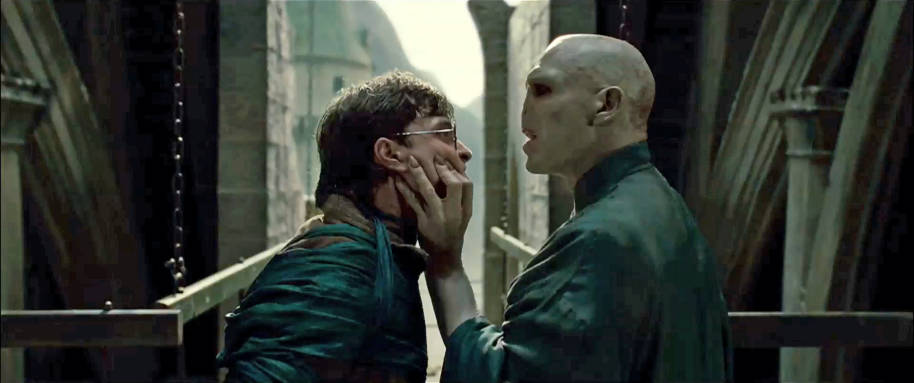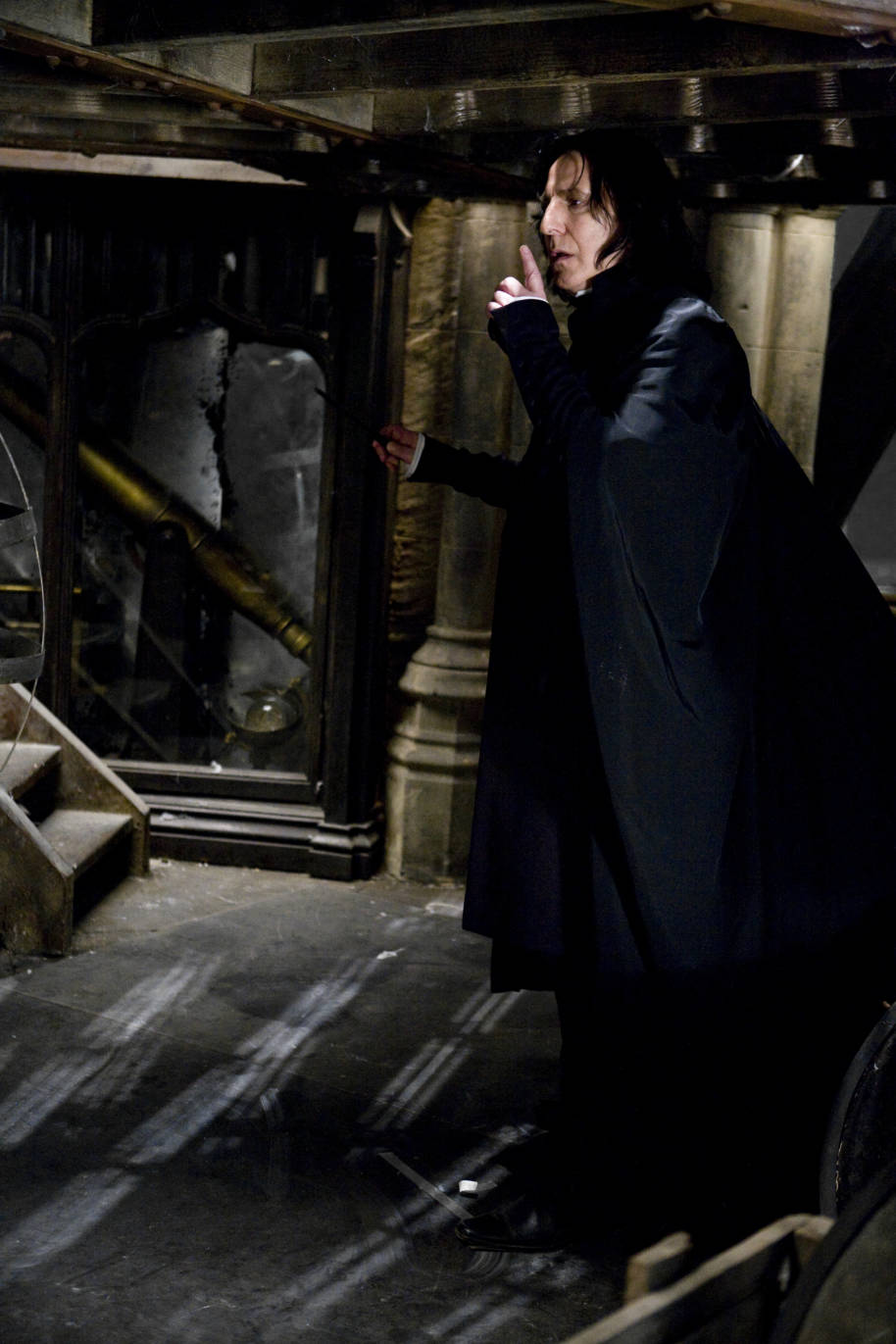Occlumency was, as Snape told Harry, a pretty obscure branch of magic. Obscure because not many people faced having their minds intruded upon by an accomplished Legilimens like Voldemort, but that was exactly what Harry was dealing with as he began his fifth year at Hogwarts. So he probably could have done with this: our guide to Occlumency.
What was Occlumency, exactly?
Snape called Occlumency ‘the magical defence of the mind against external penetration’ because Snape liked to talk this way. Those practised in the art of Legilimency – like Voldemort, apparently ‘the most accomplished Legilimens the world has ever seen’ – could enter another person’s mind easily and so see when they were lying. Occlumency was the only method by which Legilimency could be repelled. It involved the subject of the Legilimency attack effectively shutting down their own mind so as to prevent access to their thoughts.

The connection between Voldemort and Harry meant both found it easy to delve into each other’s minds. For Harry this was accidental and, initially, unwanted, but Voldemort – who often practised Legilimency on his followers and victims alike – began to use it against Harry as soon as he became aware of the insight he’d been giving him. That was when Dumbledore insisted Harry learn Occlumency.
How was it performed?
To perform Occlumency, a person had to rid their mind of all thoughts and emotions. ‘Make it blank and calm,’ Snape told Harry. With a quiet mind, a person could then repel the Legilimency attack by disarming, shielding or hexing their opponent, as Harry did during his first lesson with Snape. The concept was similar to fighting off the Imperius Curse, something Harry had already shown he could do.

Harry’s first attempt at Occlumency wasn’t as poor as it might have been – Snape actually said that. He fought back, yet he also let Snape get pretty far into his mind. According to Snape, this was because Harry lost control.
Accomplished Occlumens, on the other hand, had enough self-control to withstand Legilimency attacks without the need for disarming or hexes. Such witches and wizards could compartmentalise their feelings and shut down their minds at a moment’s notice.
Why practise Occlumency?
A person’s mind was particularly vulnerable to attack when they were relaxed or overly agitated. Whilst asleep, unguarded thoughts and feelings had no protection, which is why Harry was able to see through Voldemort’s eyes when he was dreaming. It was also how Voldemort was able to plant the false vision of Sirius being locked up in the Department of Mysteries. Similarly, if a person was excited or angry – as Voldemort often was when Harry was able to see inside his mind – their emotions were equally unguarded.

Occlumency was important to protect against such intrusion, and it also allowed its practitioners to lie without fear of discovery. It was no surprise, then, to learn Snape was an accomplished Occlumens – you’d need to be, working in Voldemort’s camp.
Harry’s attempts at Occlumency
Harry, however, failed to master Occlumency. In part, this was because he was unable to master his emotions – Dumbledore should have known he’d find that hard, given he often pointed to Harry’s ability to feel as one his greatest strengths. And he was a teenager, too: emotions always run riot with all those pesky out-of-control hormones.

Harry’s failure was also partly down to Snape. The animosity between the two did not make for a positive atmosphere for learning, and the anger Harry felt was hard to suppress. Snape, usually master of all his secrets, also found it harder to control his emotions – he stored his worst memories in a Pensieve, and even Dumbledore later admitted Snape found it too hard to let go of his resentment towards Harry’s father.
All this meant Harry left his lessons feeling his mind’s resistance was weaker, not stronger. It didn’t help that Harry saw his link to Voldemort as a strength: it had, after all, helped to save Arthur Weasley’s life. This became even more apparent when Harry chose to use his connection with Voldemort in his later hunt for Horcruxes. By that point, being able to interpret Voldemort’s emotions was not something he wanted to prevent.
Draco the Occlumens
There was, however, one Hogwarts student who mastered Occlumency: Draco Malfoy. Occlumency allowed Draco to pursue his secret mission throughout his sixth year, apparently undetected.
Draco mastered Occlumency with help from his aunt Bellatrix. He was certainly fairly accomplished, given he could deny to Snape’s face having anything to do with the cursed necklace that injured Katie Bell. That Draco was so successful is something J.K. Rowling has addressed herself:
‘I argued that it was perfectly consistent with Draco’s character that he would find it easy to shut down emotion, to compartmentalise, and to deny essential parts of himself.’
In this, Draco was fundamentally different to Harry. Harry couldn’t master Occlumency because he couldn’t shut down emotion – he was hot-headed, ready to spring into action, unable to stop himself biting back. Draco, on the other hand, was well able to control himself when circumstances demanded it. By the time of his sixth year, he was used to compartmentalising his feelings: sneering bully on the one hand, frightened teenager on the other.
So maybe the skill of Occlumency does depend on the person’s personality. After all, this is magic of the mind.

